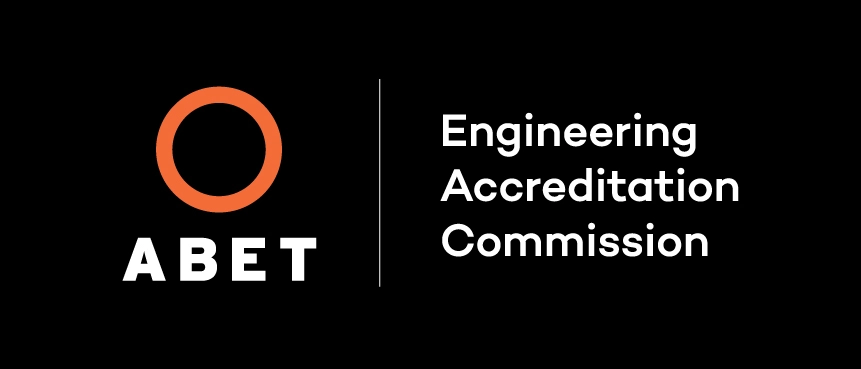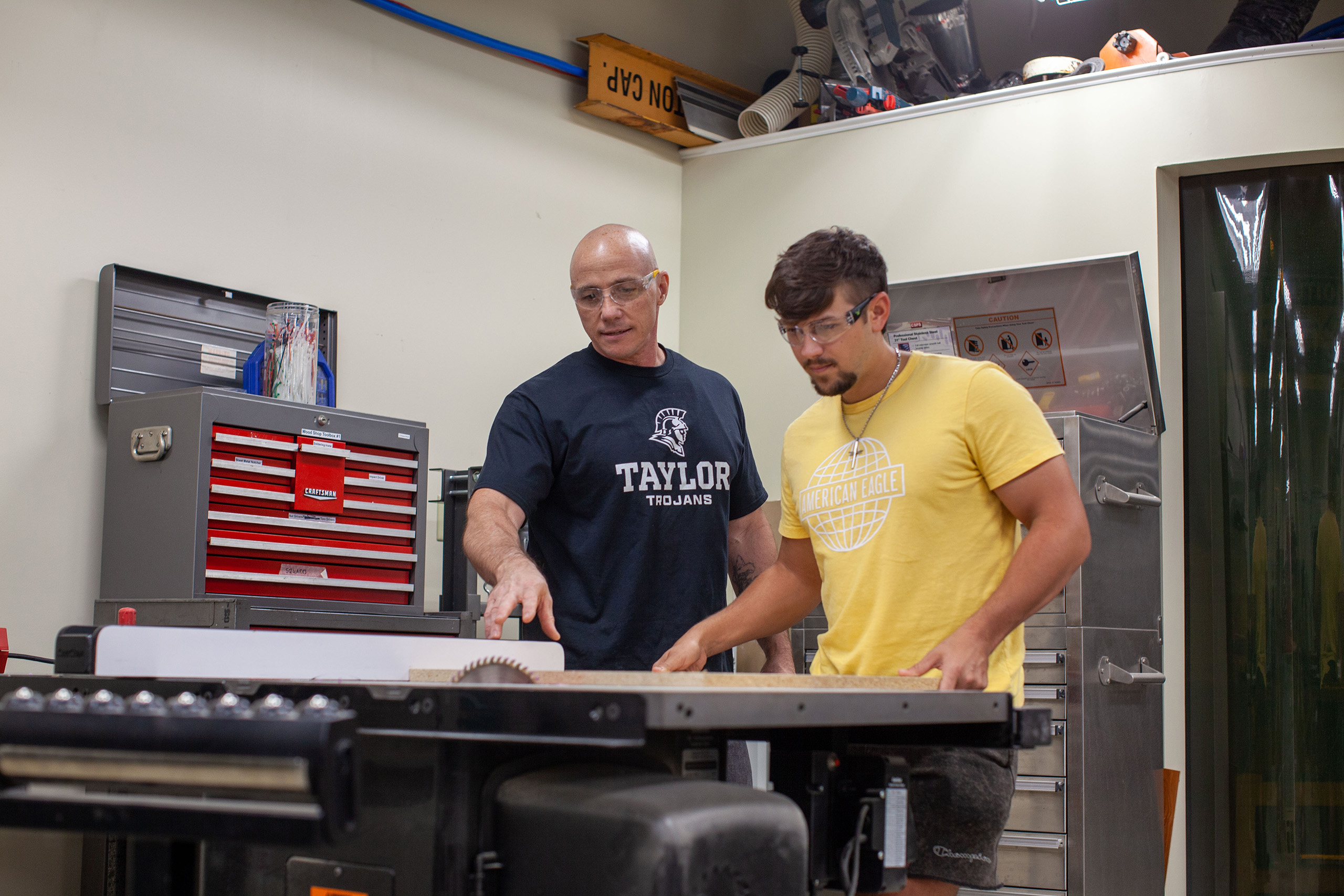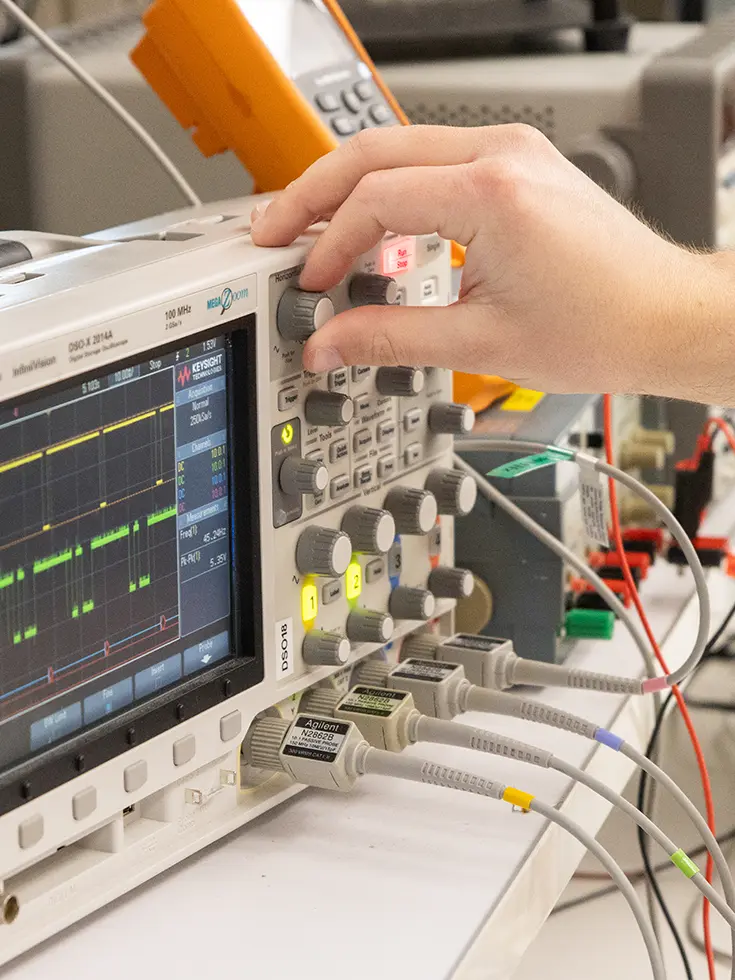-
-
- Financial Aid
- Financial Aid
- Scholarships
- Loans
- Grants
- Federal Work Study
- Additional Resources
-
Amplify your analytic and creative acumen as you design and build technology.
Become a skilled and versatile engineer through Taylor's project-based and career-focused BS in Engineering program. Taylor’s BS in Engineering is accredited by the Engineering Accreditation Commission of ABET, https://www.abet.org, under the commission’s General Criteria and Program Criteria for Engineering.
 Learn about mechanical, electrical, material, and thermal systems. Dig into mathematics, engineering, and physics. Train in state-of-the-art facilities and work on large-scale research projects. Sketch designs and construct digital prototypes. Discuss ethical issues with modern technologies.
Learn about mechanical, electrical, material, and thermal systems. Dig into mathematics, engineering, and physics. Train in state-of-the-art facilities and work on large-scale research projects. Sketch designs and construct digital prototypes. Discuss ethical issues with modern technologies.
Taylor students are creators and doers with a passion to serve Christ wherever He puts them. Learn from our caring and supportive faculty and study alongside students who share your strongly rooted Christian values.
Build Skills In:
Career Opportunities:

Check out the project-based, career-focused work that you’ll be doing in our dedicated engineering lab.

An investment from the Don Wood Foundation funds additional state-of-the-art, industry-forward machines and prototyping equipment.
Throughout your courses, you’ll build a broad foundation you can apply to all areas of engineering. You'll also select one concentration. Review the BS in Engineering curriculum guide to learn more.
Throughout your courses, you’ll build a broad foundation you can apply to all areas of engineering.
Prepare our graduates to serve others dependably, most importantly their employer, customers, and community.
Prepare our graduates to practice technical competence, producing trustworthy engineering designs. Prepare graduates who produce designs which are competent and responsible, accountable to God and to the safety of the public.
Prepare our graduates to exercise creativity in their work, fostering innovative solutions. Prepare graduates who multiply their God given gifts to create innovative solutions to dynamic problems for His glory.
Prepare our graduates to pursue growth in their faith, social understanding, and technical competence so that they can adapt to meet the needs of an ever-changing world. Prepare graduates with a growth mindset who act competently, dependably, and with divine discernment in an ever-changing world.
The Engineering Faculty has adopted engineering criteria (1) through (7) for student outcomes, as expected from the Engineering Accreditation Commission of ABET, in addition to criteria (8) which focuses on spiritual growth.
Students will gain an ability to identify, formulate, and solve complex engineering problems by applying principles of engineering, science, and mathematics.
Students will gain an ability to apply engineering design to produce solutions that meet specified needs with consideration of public health, safety, and welfare, as well as global, cultural, social, environmental, and economic factors.
Students will gain an ability to communicate effectively with a range of audiences.
Students will gain an ability to recognize ethical and professional responsibilities in engineering situations and make informed judgments, which must consider the impact of engineering solutions in global, economic, environmental, and societal contexts.
Students will gain an ability to function effectively on a team whose members together provide leadership, create a collaborative and inclusive environment, establish goals, plan tasks, and meet objectives.
Students will gain an ability to develop and conduct appropriate experimentation, analyze and interpret data, and use engineering judgment to draw conclusions.
Students will gain an ability to acquire and apply new knowledge as needed, using appropriate learning strategies.
Students will gain an ability to demonstrate Christian servant-leadership by practicing spiritual disciplines and redemptive community service. This is honed through the development of personal knowledge, skills, habits, and relationships that enable Christian Growth and active involvement in service to Christ and His Kingdom.
Students interested in course descriptions and academic policies can check out our Undergraduate Catalog.
A Taylor liberal arts education will prepare you to live and work in a fast-changing world. It also goes a step further: laying a strong spiritual foundation that cultivates wisdom. You’ll become a well-versed individual, equipped with critical thinking skills, a lifelong love of learning, and an appreciation for God’s creation.
Build your teamwork skills as you work on major projects. At Taylor, your engineering curriculum includes large-scale projects. Work alongside your peers while your faculty mentors you, every step of the way. Explore a few of the exciting projects our students are involved in.
Contact
Danielle Nobles-Lookingbill
Department Chair and Assistant Professor of Engineering
765-998-4525
email
Contact
Lara Horsley
Computer Science & Engineering Program Assistant
765-998-5162
email
